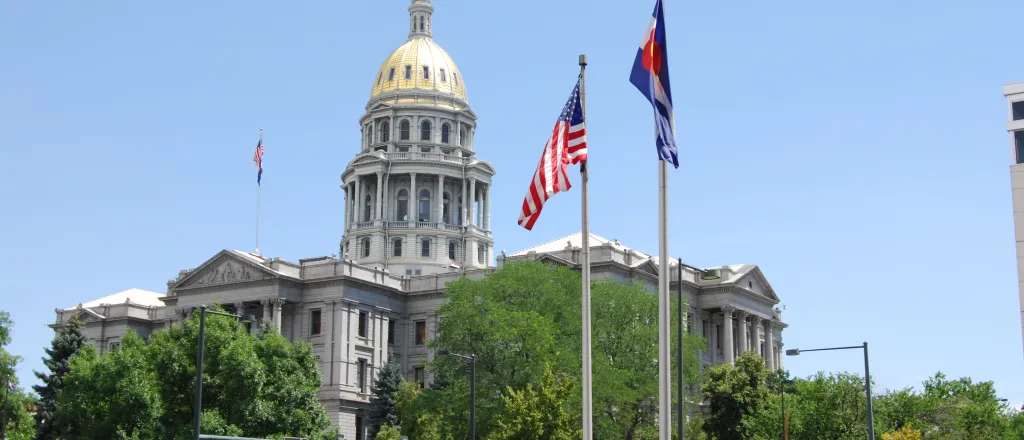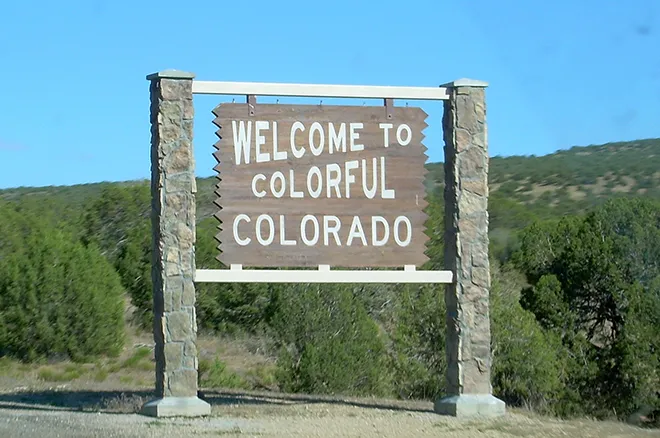
Colorado House gives initial OK to bill that would ease union formation despite veto threat
The Colorado House of Representatives Monday gave preliminary approval to a bill that would eliminate a second election requirement, unique to the state, for union formation, four months after the legislation was introduced and two days before the end of the lawmaking term.
After months of negotiation between labor and business groups, there was no deal reached among groups on opposing sides of debate around the measure, and the bill is the same as it was in January. That will set up a likely clash with Governor Jared Polis, who has signaled opposition to the measure.
Senate Bill 25-5 was a priority for progressive Democrats this year. It would alter union law in the state by removing a second election requirement to negotiate union security, the term used when everyone in a workplace is required to pay into the representation a union provides, regardless of membership. In Colorado, a 50 percent vote is necessary to form a union, as is federal law, but a second election requiring a 75 percent vote is required to negotiate union security in a contract.

Unions negotiate compensation, benefits and workplace conditions for all workers, not just members.
That second election does not automatically require union security but allows it to be on the negotiating table. And workers could still decline to ratify a contract that includes union security.
“There is nothing in this bill that is requiring anything other than to be allowed to collectively bargain. And that is a decision and a choice that employees can make, and then that is a decision and a choice that everyone in that workplace can bargain over as well,” said bill sponsor Representative Jennifer Bacon, a Denver Democrat.
Bill supporters say the second election creates a massive barrier for strong union formation in the state and leads to Colorado’s low unionization rate.
“Something is happening between that first and second election. We heard stories of what’s happening between those elections. Workers are being dissuaded. Workers are being tantamount to intimidation,” Bacon said. “That second vote has demonstrated that it is a tangible barrier to being able to collectively bargain.”
The bill is also sponsored by Representative Javier Mabrey, a Denver Democrat. It was sponsored by Senate Majority Leader Robert Rodriguez, a Denver Democrat, and Senator Jessie Danielson, a Wheat Ridge Democrat, in the Senate.
“This bill is about empowering Coloradans to stand up for better workplaces and to stand up for higher wages in an economy that is increasingly rigged against them,” Mabrey said, framing the vote in the context of growing wealth inequality and elimination of some workers’ rights and consumer protection efforts and the federal level.
The bill was previewed last year and introduced on the first day of the legislative session. From the start, Polis expressed wariness of signing a bill that didn’t reflect a compromise between labor and business.
Representing workers who are ready for change, we came to the table in good faith but business walked away from a meaningful compromise that would have made our system fairer and safer for working people.

© designer491 - iStock-931431806
The Senate passed an unamended version of the bill in February. It languished on the House calendar for about a month after moving through its committees, as sponsors and stakeholders continued to discuss potential compromises.
That deal never came.
“Representing workers who are ready for change, we came to the table in good faith but business walked away from a meaningful compromise that would have made our system fairer and safer for working people,” Dennis Dougherty, the executive director of Colorado AFL-CIO, said in a statement over the weekend.
Loren Furman, the president of the Colorado Chamber of Commerce, rejected that characterization. Business groups including Colorado Concern and the Denver Metro Chamber of Commerce were also involved in talks. She said the chamber offered three ideas that labor interests didn’t agree to, and that chamber’s members couldn’t agree to the “creative proposals” that the governor’s office came up with, one of which she said would have bifurcated small and large businesses in the matter.
“At the end of the day, it’s disappointing. I take this process very seriously and we have always tried to find a common ground or consensus on issues down here at the Capitol. This is a policy that’s been in place for 83 years, and yet we still came to the table and offered significant compromises that would’ve helped labor unions be more successful,” she said. “At the end of the day, it was really important to us that all employees have a say over whether or not these fees get withdrawn from their paychecks.”
House sponsors moved forward on the bill despite the absence of a negotiation. The bill needs a final, recorded vote in the House before it heads to the governor to either sign or veto.
“The Governor is disappointed in this outcome but appreciates the robust conversation between sponsors, business, and labor on this bill, and he hopes both sides find a way forward in the future that reflects our shared goals of prosperity, fairness, and opportunities for workers. The Governor’s Office tried to help bridge the gap on this issue, but unfortunately agreement was not reached,” spokesperson Shelby Wieman wrote in an email.
But Bacon urged Polis, as the “figurehead of the Democratic Party” in the state, to sign the bill. Last year, Polis vetoed two labor-related bills, which drew frustration and sharp criticism from unions and Democrats.
Republicans are uniformly against the bill. They generally agree with the Labor Peace Act, which established the second election, and view the 80-year-old law as a functioning compromise between labor and business.
“This (bill) is about forcing workers to pay union dues against their will, even if they want nothing to do with the union. It’s mandatory, compulsory fees,” said Representative Chris Richardson, an Elizabeth Republican. “It’s about compelling association and compelling speech, and that’s wrong.”
Monday, Democratic Representative Bob Marshall of Highlands Ranch tried to run an amendment to get rid of the second election and allow union security negotiations if at least 60 percent of workers voted for the union formation. A similar amendment was determined to not fit under the title of the bill during committee, and his amendment on Monday was also ruled out of the scope of the bill’s title.
The legislative session ends Wednesday.

















